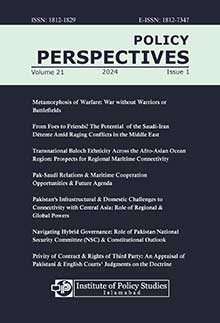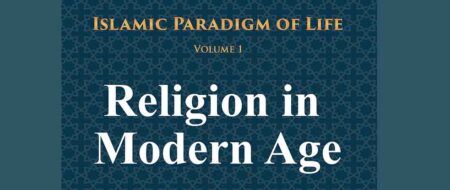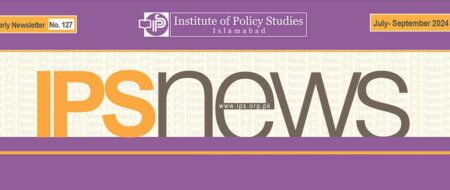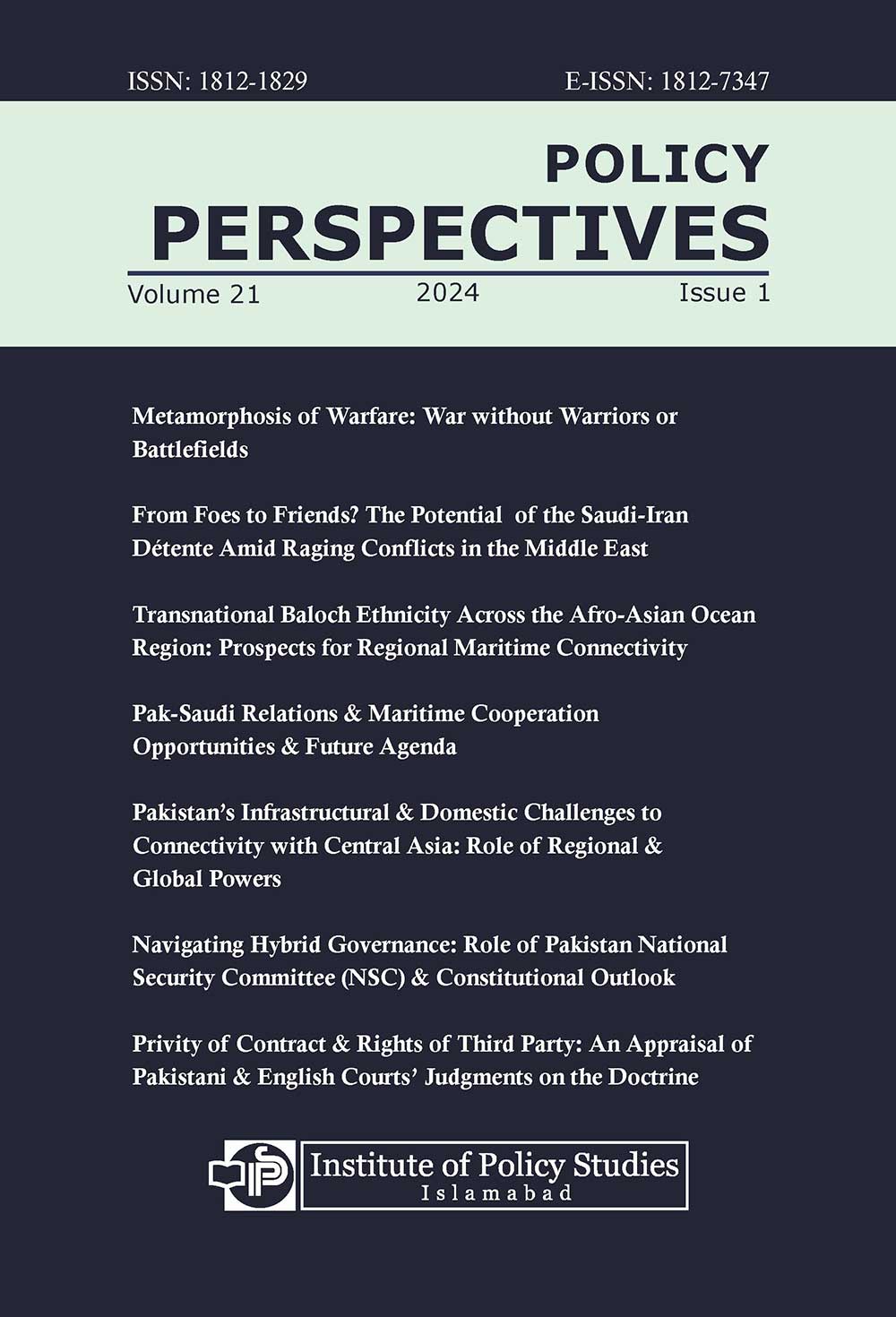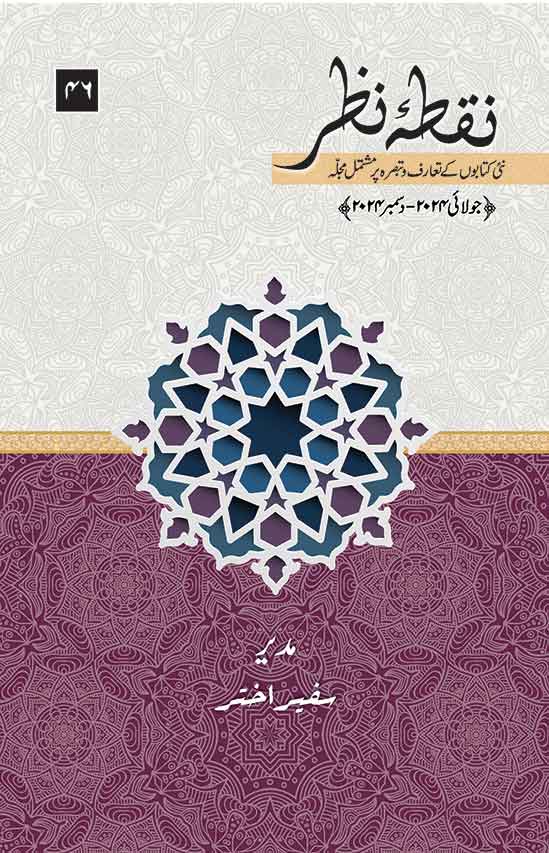Policy Perspectives (Volume 21, Issue No. 1, 2024)
|
Editor-in-Chief: Khalid Rahman Download Contents |
Policy Perspectives (Volume 21, Issue No. 1, 2024)
The latest issue of Policy Perspectives presents research, analyses and discussion on various topics concerning national and international issues from policy experts, academics, and practitioners.
The first paper on ‘Metamorphosis of Warfare: War without Warriors or Battlefields’ discusses the evolution of warfare from first to fifth generation. It explores the latest trends in land and air warfare, analyzing the hybrid and ‘Everywhere Battlefield’, which though marks technical superiority, points to a decline in respect for human integrity and values.
Author: Aneela Shahzad, Geopolitical Analyst; Author of the following books: Understanding Geopolitics; and Geopolitics-from the Other Side.
DOI: https://doi.org/10.13169/polipers.21.1.ra1
Dr Nora Maher in her paper ‘From Foes to Friends? The Potential of the Saudi-Iran Détente Amid Raging Conflicts in the Middle East’ reviews the Saudi-Iran deal brokered by China in March 2023, which represents the thawing of frosty bilateral relations between Riyadh and Tehran after prolonged antagonism and an unending series of proxy wars. She evaluates the potential of the historic deal by assessing the strategic realignment of both countries, focusing on the prospects for both sides.
Author: Dr Nora Maher, Political Science, Faculty of Economics and Political Science, Cairo University, Cairo, Egypt; Former Associate Professor, Political Science, The British University in Egypt (BUE), Cairo, Egypt.
DOI: https://doi.org/10.13169/polipers.21.1.ra2
The next paper ‘Transnational Baloch Ethnicity Across the Afro-Asian Ocean Region: Prospects for Regional Maritime Connectivity’ maps the transnational ethnic identity of the Balochs. The predominantly ethnic Balochs from the coastal belt of Balochistan and Sindh have, over the centuries, spread across the littoral regions of the Indian Ocean, particularly in Gujarat, South India, the Persian Gulf, as well as East Africa. It underscores opportunities for Pakistan to tap into the hidden potential of ethnic and social linkages, fostering public diplomacy and geoeconomic connectivity in the Afro-Asian Ocean region.
Author: Naufil Shahrukh, Former General Manager, Institute of Policy Studies (IPS); Deputy Team Leader, Institutional Reform Studies, Karachi Water Sewerage Services Improvement Project (KWSSIP), an initiative of the Government of Sindh funded by the World Bank and Asian Infrastructure Development Bank (AIDB); PhD Scholar, Department of History, Quaid-i-Azam University, Islamabad, Pakistan.
DOI: https://doi.org/10.13169/polipers.21.1.ra3
The next paper on ‘Pak-Saudi Relations Maritime Cooperation: Opportunities Future Agenda’ highlights the potential benefits of Pakistan’s relations with Saudi Arabia, consequent trade partnerships, investment prospects, technological advancements, and regional cooperation on the former’s economy. In the wake of Saudi Arabia’s Vision 2030 and significant investments in its maritime and logistics sectors, Pakistan, too, can capitalize on strengthened maritime collaboration with Saudi Arabia, with its strategically important ports such as Gwadar and Karachi ports.
Author: Muhammad Jawad Akhtar, Former Advisor, Ministry of Planning, Development Special Initiatives (MoPDSI), Government of Pakistan; Senior Associate, Institute of Policy Studies (IPS), Islamabad, Pakistan.
DOI: https://doi.org/10.13169/polipers.21.1.ra4
Given its geostrategic location, Pakistan is often called a gateway to the Central Asian Republics (CARs). Its significance has further increased with the China-Pakistan Economic Corridor (CPEC), which holds a pivotal role in the region. However, regional connectivity faces numerous challenges, including political, geographical, economic, infrastructural problems. Dr Faisal Javed, Dr Uzma Siraj, and Dr Arkadiusz Zukowski in their paper ‘Pakistan’s Infrastructural Domestic Challenges to Connectivity with Central Asia: Role of Regional Global Powers’ provide a nuanced understanding of the potential barriers to regional connectivity and the efforts required to overcome them.
Author: Dr Faisal Javed, Assistant Professor, Department of International Relations, Federal Urdu University of Arts, Sciences and Technology, Karachi, Pakistan; Dr Uzma Siraj, Assistant Professor, Department of International Relations, Federal Urdu University of Arts, Sciences and Technology, Islamabad, Pakistan; and Dr Arkadiusz Zukowski, Professor, Institute of Political Science, University of Warmia and Mazury in Olsztyn, Olsztyn, Poland.
DOI: https://doi.org/10.13169/polipers.21.1.ra5
The paper ‘Navigating Hybrid Governance: Role of Pakistan National Security Committee (NSC) Constitutional Outlook’ analyzes the civil-military relations in Pakistan under two different models i.e., ‘control theory’ and ‘convergence theory’ to bring in a new perspective to the analysis of the topic. It looks into the case of hybrid governance under the NSC in line with the tenets of the 1973 Constitution of Pakistan. It suggests that a consistently functional consultative NSC can help diffuse the ideological differences between civil and military leadership, creating synergies.
Author: Anum Akhlaq, Researcher at the Institute of Policy Studies (IPS), Islamabad, Pakistan; MS scholar, Media Studies, Riphah International University, Islamabad, Pakistan.
DOI: https://doi.org/10.13169/polipers.21.1.ra6
Farqaleet Khokhar in his paper on ‘Privity of Contract Rights of Third Party: An Appraisal of Pakistani English Courts’ Judgments on the Doctrine’ comparatively surveys the two limbs of the privity doctrine. To critically analyze the developed jurisprudence on the doctrine, he reviews the judgments of Pakistani and English courts. He further evaluates the traditional approach of Pakistani courts toward the non-enforcement of third-party rights. Khokhar underscores the significance of evolved English approach which gives the third parties the right to enforce a contract, which confers benefits on them.
Author: Corporate Lawyer; LLB (Hons), Gillani Law College, Bahauddin Zakariya University, Multan, Pakistan.
DOI: https://doi.org/10.13169/polipers.21.1.ra7
Finally, the ‘Dialogue at IPS’ section features ‘18th Lok Sabha Elections in India: Approaches Emerging Trends’ based on the discussions on the topic held at the Institute of Policy Studies during recent months.
The full text of the articles will be available soon at ScienceOpen and JSTOR.



